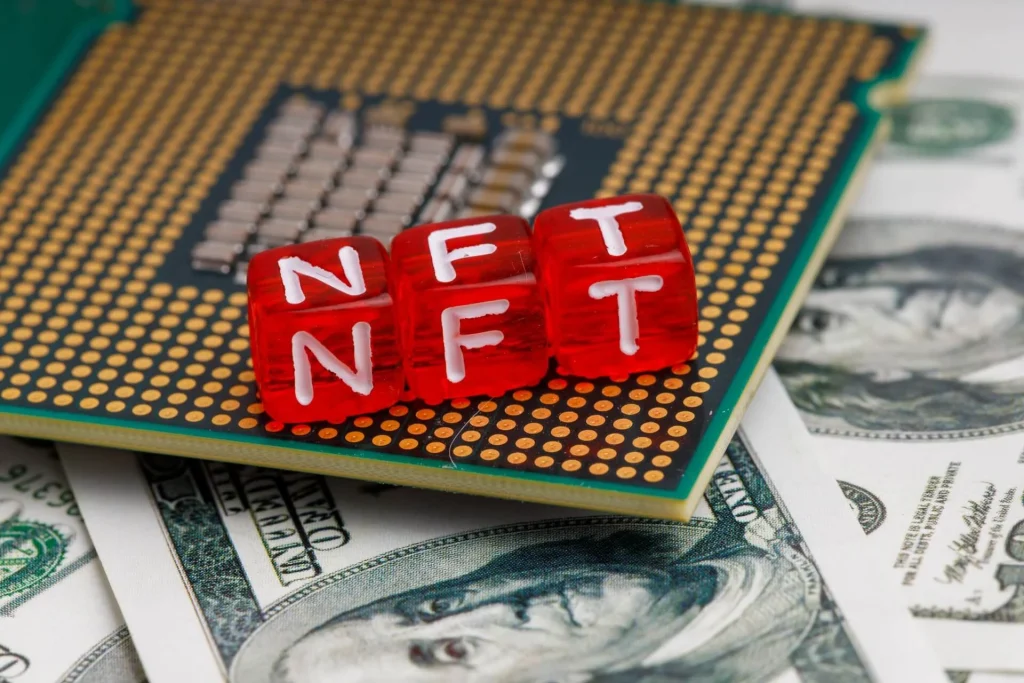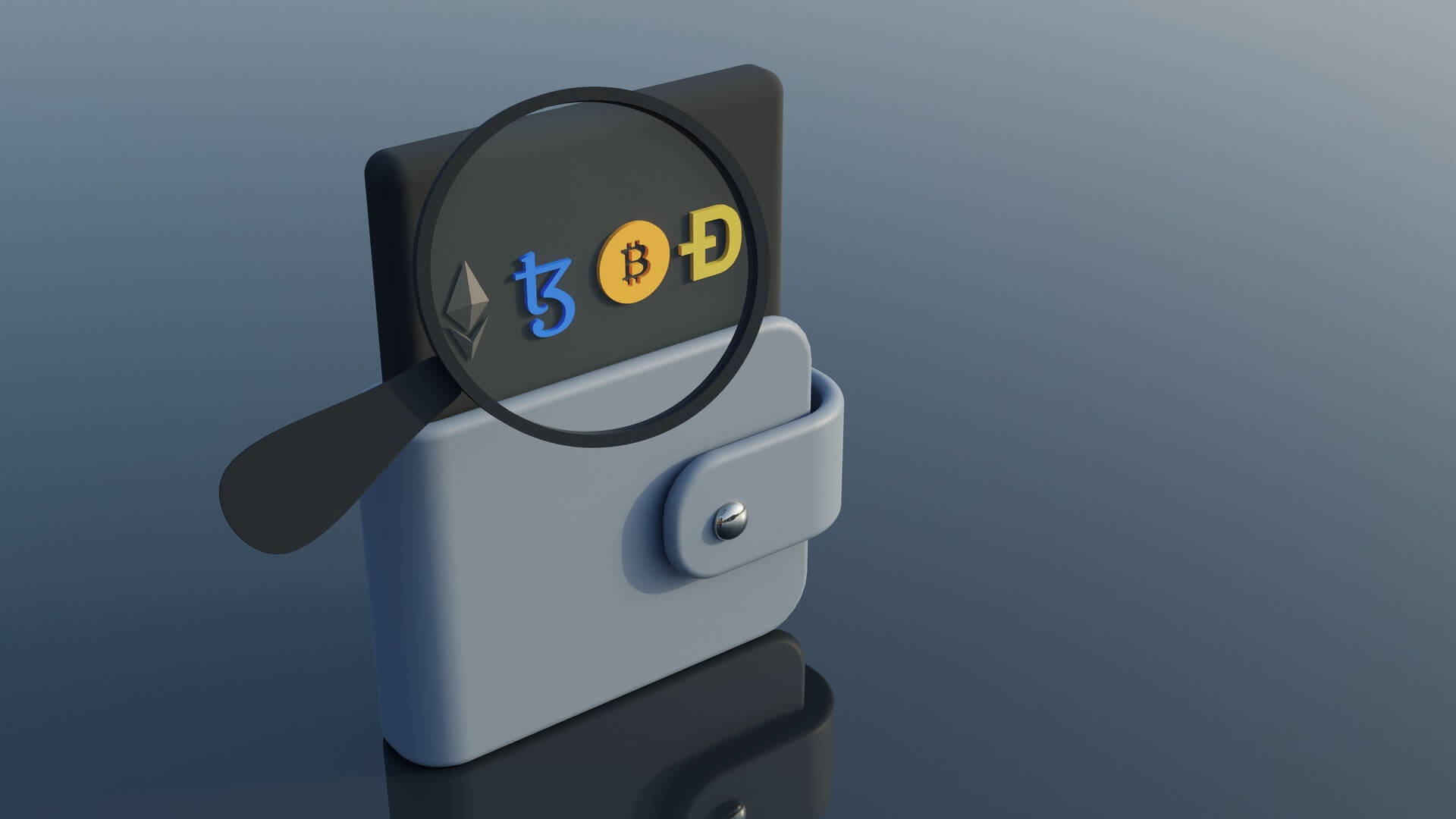NFTs are starting to enter the world of real estate, and it just might be how your kids will buy their own preselling house and lot. In fact, a home in the US was just bought for $653,000 through the use of NFTs. But just what are NFTs? How does it work? Should you invest in them? Let’s talk about it.
What Are NFTs?
NFTs or Non-fungible Tokens are assets that can be bought and sold using blockchain technology. However, unlike popular cryptocurrencies that use the blockchain, NFTs have unique identification codes and metadata, and cannot be traded or exchanged in equivalence. Meaning, each NFT is completely unique. Hence its name, “non-fungible.”

Everydays: the First 5000 Days by Beeple is the 2nd-most expensive NFT ever sold. It was sold for $69.3 million. | Photo from onlineonly.christies.com
There are different types of NFTs, but one of the most popular forms is digital art. However, other types also include music, virtual items, identity, memes, collectibles, and even real-world assets.
By real-world assets, we mean luxury goods and even real estate, like that preselling house and lot you’ve always wanted to buy.
How Do NFTs Work?
Now, just like physical money, most cryptocurrencies are fungible. Meaning, one Bitcoin will always have the same value as another Bitcoin. This fungibility is what makes crypto scalable and usable for secure transactions in the digital space.
On the other hand, since NFTs are unique, irreplaceable, and have non-transferable identities, they can act as deeds of a sale. Each NFT contains ownership details so that token holders can easily identify and transfer them with one another. The owner of an NFT can decide to add metadata or attributes that pertain to the asset.
So, in essence, buying an NFT gives you a unique digital proof of ownership.

Since NFTs also use the blockchain, it can also provide full transparency in terms of transactions and title transfers because the blockchain has a ledger. This ledger is public and can be viewed by anyone who uses the blockchain, and best of all, it cannot be edited or faked.
Therefore, for example, you bought a preselling house and lot using NFTs and say after ten years you decide to sell your property, and then the new owner sells the property after another ten years. Each of the owners has transparency and can see who previously owned the property they’re getting into and how much they spent on it. On top of that, future buyers can view who owned the property over the years.
This transparency gives power to the buyers because it eliminates overhead prices and scams involved in real estate. Moreover, real estate brokers can also benefit from this because the blockchain can provide better property search options and the property buy and sell is fully automated, which means less paperwork. On top of that, brokers who help consumers NFT their homes can receive royalties for every purchase.
How an NFT Locked in a $653,000 Florida Home Sale
Since we’re on the subject, we may as well talk about how headlines started talking about this home in Florida that was just bought through an NFT sale.
The complete origin of the story was published in Forbes and was written by Natalia Karayaneva, the CEO of Propy, who made it all happen.

Photo from medium.com
According to her, it all began in April of 2021 when she thought of the idea that real estate is one of the best assets that can be converted into an NFT. She believed that real estate properties already behave like digital assets because of the uniqueness of each property. However, using NFTs for real estate would provide a better experience for both buyer and seller.
Some of the benefits of using NFTs for real estate include simplified overall transactions and instantaneous settlement. Both of which are what current young adults and future adults want since they grow up getting things fast and through their phones. Unfortunately, this new generation of buyers is currently unaccustomed to the costly and lengthy process of buying a home, much less a preselling house and lot. Some of them would rather not buy a home than go through the grueling process.
Natalia also said that real estate transactions, in general, are long and tedious, and rely on outdated methods of transacting businesses. Not to mention, so many middlemen are often involved. Hence, she was hoping to use NFTs to show that it’s possible to change the system.
Some of the challenges that they had to go through included creating the NFT for the property and wrapping it within the framework of US legalities.
They started by changing the ownership of the property from individual ownership to a US-based legal entity (like a corporation or a limited liability company). Now that the ownership of the property is recorded as a US LLC, the winner of the auction will also own rights to the LLC.
About 50 people bid in the auction, all of which had to verify their identities online since this is a usual protocol when processing transactions through the blockchain. After the auction, the winner was determined, and the ownership of the property was then transferred from a legal entity back to individual ownership. The seller of the property received payment in crypto (in this case, Ether) via a digital wallet.
Since the deed of the property is created via NFT, it only took 22 minutes to transfer ownership. This fast and easy transaction can (and will most probably) attract millennials and gen z’s to purchase high-value assets like real estate, and NFT technology can provide security.
Should You Invest in NFT Real Estate?
With this promising story, you might already be interested in investing in NFTs for real estate. However, it’s still relatively new, so you might be wondering if this is just another short-term trend or a good investment.
Levent Künzi, the CEO of Properti, a real estate company that uses technology to modernize residential real estate in Europe, says that the token marketplace has grown from gamesmanship to a serious investment.
Blockchain technology can be used for smart contracts that can digitize land registers, making transactions easier. Tokenizing real estate will work in such a way that the token or NFT represents the ownership information of the asset, which will then be recorded on a blockchain.
In doing so, all the information about a property, including construction plans, ownership, the investor’s rights, and the location of the property are all mapped and recorded in a smart contract or NFT, which will also be securely recorded on a blockchain. This makes selling real estate more accessible to a broader investor base.
Real estate can benefit from this because transaction fees in the blockchain are very low. On top of that, the transparency of the blockchain prevents illegal activities such as tax evasion or money laundering, since the blockchain cannot be forged.
Let’s use the pioneer of blockchain-based tokenization, Black Manta Capital Partners. In 2020, they successfully conducted a Real Estate Token Offering (RETO) where they tokenized a high-end real estate in Berlin worth 12 million USD. Both private and institutional entities were able to invest in an apartment in a premium location in Berlin at a starting value of 500 EUR. It’s like buying a preselling house and lot in a different country.
This project paved the way for both professional investors and ordinary citizens where they can invest in something profitable. In the case of the RETO project, investors can enjoy a 20% share of the profit when the construction of the real estate is complete.
Buying real-world properties as NFTs can also help individuals because blockchain real estate brokers who tokenize properties provide support for the transaction.
In your case, you can also go for fractional property ownership via NFTs. Fractional ownership involves homeowners that sell part of their property to a large number of investors by issuing tokens on a particular blockchain. Investors can buy these tokens and receive a rental income. Doing so can allow you to buy or sell fractional ownership in rental properties without a middle man.
So, in a way, real estate NFTs work like stocks where tokens represent a share of a real estate project. You receive your profits just like any other share-based investment. So, for example, you own one out of five tokens from a real estate company that invests in residential projects, you’ll receive a check after each earning cycle. Additionally, just like regular shares, you can sell those tokens anytime you want.

Pros and Cons of NFT Real Estate
Of course, while real estate NFTs sound so perfect because of their security and ease, it still has their pros and cons. Unfortunately, since it’s new, we really can’t determine their strengths and weakness.
Probably the most obvious downside of NFTs is the risk. Any new technology comes with a new set of risks. One of the biggest strengths of the blockchain is its fraud-proof or forgery-proof feature. Crypto accounts are impossible to crack, so that means if you lose your key to your account, you might set yourself for quite a loss.
Another disadvantage of NFTs involves the environment. See, blockchain transactions (including the creation and sale of NFTs) require a lot of power usage since digitizing assets require significant capabilities from computers. Because of the system demand of accessing the blockchain, computers and servers need cooling systems. Since it requires a lot of power, it contributes to greenhouse gasses, since the world still depends a lot on fossil fuels.
Finally, probably the biggest risk in NFT real estate is the volatile nature of crypto, which can create fluctuations in terms of asset value. Hence, their value can go to zero with no warning. Hence, NFTs that represent ownership in real-world investments are more stable.
However, before you decide to digitize your property, you should also be prepared for the risk that no one might buy it.
Take the story of Shane Dulgeroff, a real estate broker who took advantage of the NFT hype by selling an NFT video of the home, packaged along with the real estate itself. The minimum bid is 48 ETH (almost $117,000), but the NFT failed to find a buyer.
So, at the end of the day, you need to have the right help, platform, and marketing plan to sell real estate as an NFT. Not to mention, there are still a lot of uncertainties when it comes to legalities and taxes.

NFT Regulations in the Philippines
Since we’re on the subject of legalities, you also need to know how our country regulates NFTs. In the Philippines, NFTs have become mainstream because of the play-to-earn game, Axie Infinity, where “Axies” are unique digital characters (NFTs) that can earn tokens that owners can trade into a cryptocurrency.
However, the legal and regulatory treatment of NFT technology is still in a wait-and-see status. Although, according to Asia Business Law Journal, NFTs may fall under Philippine regulations depending on the business model or process where the project is embedded.
Therefore, NFTs that are only used purely as in-game tokens and not used outside the gaming ecosystem are excluded from the definition of virtual assets regulated by the Bangko Sentral ng Pilipinas (BSP). Meaning, NFTs that have no utility in terms of acting as a means of payment are outside the jurisdiction of the BSP. Consequently, any virtual asset that can be used as a payment token will fall under the regulation of the BSP.
However, currently, the BSP is only warning the public against the volatility of NFTs.
Meanwhile, in terms of taxation, the Philippine Bureau of Internal Revenue (BIR) rules that all income derived from whatever source is subject to tax and will always be controlled unless provided otherwise by law. The BIR also has a memorandum that tells anyone that does business and earns income through digital transactions must ensure that they pay the corresponding tax liabilities for their transactions.
So, the earnings of a person from NFTs can be considered as income that is subject to income tax. This means that if your annual income from NFTs exceeds 250,000 pesos, you need to file your taxes.
You can read more about NFT regulations in the Philippines through this link.
Related Blog: Are NFTs the Future: All You Need to Know About Non-fungible Tokens


